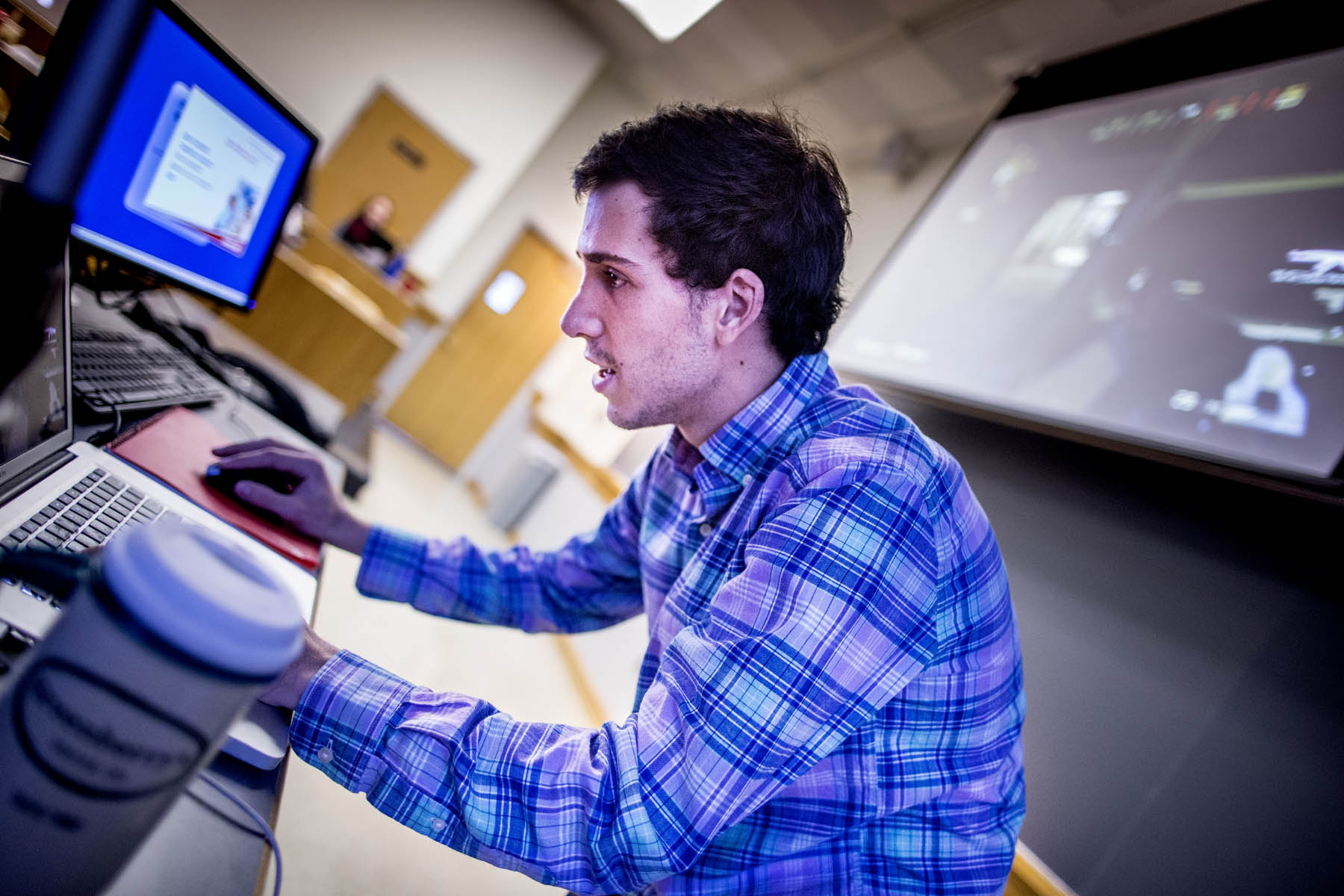Whether trekking through India or across the Lawn, the aim of each of the University of Virginia’s January Term courses is the same: to enhance the academic experience of students and faculty members.
“J-Term” is an intensive, two-week program occurring between New Year’s Day and the beginning of spring semester in which small groups of students and faculty members immerse themselves in a subject and stretch their intellectual curiosity.
This year, students had 56 for-credit courses from which to choose, on topics ranging from “Medieval Manuscripts” to “Technology and Race in the U.S.” to “Consumers and Markets in India” to “Sociology through Cinema.”
Most of the courses, which end Friday, are taking place on Grounds, though some are a little farther afield.
Nine study-abroad programs are among the offerings – in Argentina, Australia, France, Germany, India, Ireland, Panama, St. Kitts and Nevis, and Hong Kong and Singapore. (Read what students studying in Panama are posting on “The Big Ditch” blog.)
Students don’t need to travel to have a transcendent experience, though.
The 27 students in Jeffrey Olick’s “Sociology Through Cinema” course were transported daily to such places as Los Angeles, Latin America and New York City, without ever leaving Monroe Hall. They used film to gain a greater understanding of society’s underpinnings.
A professor of sociology and history and chair of the sociology department, Olick said he uses film to provide a “window into a basic issue of sociological concern: race, gender, class, city, capitalism, political trauma, deviant behavior, modernity, alienation, family, marriage.”
“Film is visceral and direct and just as analytically vigorous, I think,” as more conventional modes of study, he said.
Each of Olick’s five- to six-hour class meetings has three parts: an intensive viewing of a main film, followed by a lecture on the themes raised in the film, and a concluding discussion based on close analysis of the films watched, texts read and journal entries by students.
“For example, after viewing ‘One Flew over the Cuckoo’s Nest,’ the lecture addresses the sociology of deviant behavior as well as the way sociologists’ interest in mental institutions contributed to their transformation,” Olick notes in the course syllabus.
Other films he chose for the course include: “Taxi Driver,” “Boyz ’n the Hood,” “Crash,” “The Ice Storm” (Olick’s favorite), “Thelma and Louise” and “Death and the Maiden.”
Olick has taught his J-Term course for four years, and he’s a fan of the intensive, immersive nature of the courses – despite a schedule he described as “brutal.” This year, his classes meet Monday through Saturday, starting at 9 a.m.
“I’m surprised every day by what students say. They’re less inhibited and more willing to share emotionally. Conversations are a higher quality than in seminars,” said Olick, who attributes this to the two to three hours students spend daily on supplemental readings and journal entries they write as part of the course’s requirements.
Olick recommends that students and faculty participate in at least one or two J-Term courses during their academic careers. “What I find wonderful about the J-Term experience is … I learn the students’ names, about their lives. I get to know them, and they get to know me.”
His students share his enthusiasm for the course, often rating it the best they’ve taken at U.Va.
“I write as many recommendations for my J-Term students as I do for those in my 4000-level course,” Olick said.
Those sentiments are similar to what Rachel Miller, associate director of summer & special academic programs, hears from other students and professors participating in J-Term courses.
“In spite of the frigid temperatures, January Term 2014 is going very well,” Miller said. “Both students and faculty report lively discussions, engaging classroom activities and enriching field experiences as they immerse themselves in a topic of academic interest.”
Thirty-eight areas of study are represented among the course offerings, she noted, and 174 students selected one of the study-abroad programs available this year. Meanwhile, there are 47 domestic courses with a total enrollment of just over 800 students.
“In addition to traditional classroom experiences on Grounds, some of the courses take students beyond Charlottesville,” Miller said. “One of the Media Studies courses involves blended instruction, with half the course delivered online and the other half delivered on-site in New York City, and a new Engineering and Society course on ‘A Sense of Place: Perceptions of Coastal Ecosystems and the Written Word’ is being held at the Anheuser-Busch Coastal Research Center on the Eastern Shore.
“Several other courses include day trips or an overnight stay off-Grounds,” she added.
To see what January’s scholars are up to at any given time and place, visit the J-Term Facebook page.
Media Contact
Article Information
January 9, 2014
/content/near-and-far-january-term-offers-robust-academic-experience

